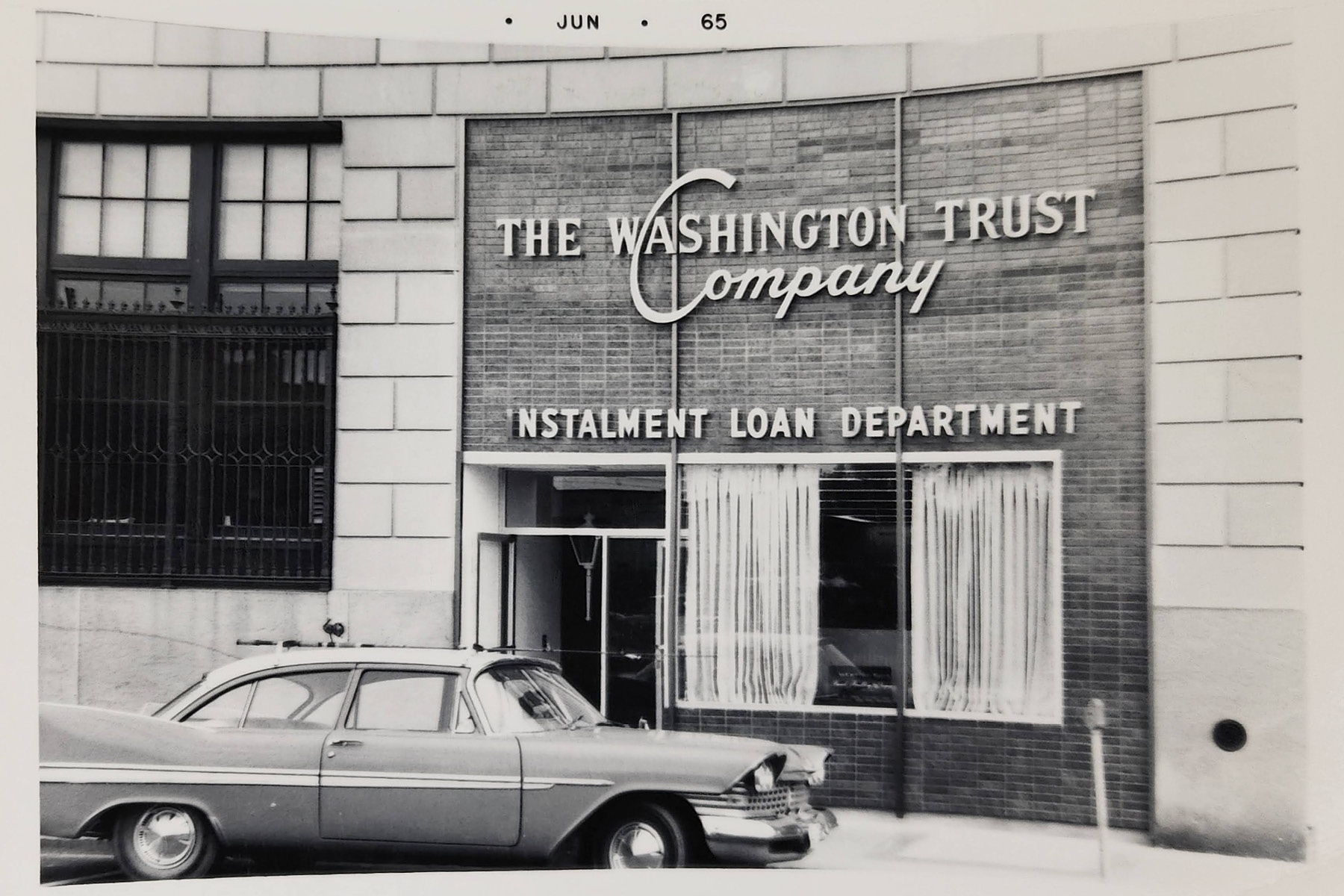This banking life: Ned Handy
Washington Trust, the oldest community bank in the United States, has worked hard to earn the confidence of customers across Rhode Island and beyond. Chairman and CEO Ned Handy is leading the bank into its next era with a focus on culture, community and innovation.
A community bank must, in addition to all of the responsibilities usually reserved for financial institutions, represent the interests of the local communities it supports. Whether lending to local businesses, investing in neighborhood initiatives or providing opportunities for those in its sphere of influence, the community bank is a societal pillar in a way big banks can never be.
Founded in 1800 and headquartered in Rhode Island, Washington Trust is the oldest community bank in the United States. That’s a long time as a pillar, but the impressive longevity speaks volumes about just how effective Washington Trust has been in its duties, especially as the communities around the bank have evolved and diversified.
"Everybody in the company that walks through the door recognizes that this place – and what it stands for – is bigger than any one of us," says Ned Handy, Chairman and CEO of Washington Trust.
"It’s got true cultural impact where the buck stops with everyone, and everyone has a part to play in this amazing story."

"I got into banking thinking I’d do a few years and learn just enough, but I never got out, and I learned more than I ever expected."
Handy’s role in the Washington Trust saga began in 2013, when he joined the bank as President and COO after nearly 20 years with Citizens Bank.
"I got into banking thinking I’d do a few years and learn just enough, but I never got out, and I learned more than I ever expected," he tells The CEO Magazine. "It’s been one wonderful opportunity after the next."
Handy’s 2018 appointment to the position of Chairman and CEO was the most wonderful of all.
"The only thing I was told when I became CEO was, ‘Don’t mess it up,’" he says, laughing. "And look, we’re in an industry where consolidation is happening all around us. I don’t want to be the one who jeopardizes the independence we’ve enjoyed for 225 years."
A unique structure
Several years later, Handy has followed that advice to a tee. Washington Trust is in a strong position, with an average branch size of close to US$200 million.
"Even throughout the COVID-19 pandemic, we added branches to our network – about one per year," he says.
"We have a unique structure and a deposit base that’s serviced by not as many branches as some of our peers have. That means it’s leverageable."

"We have a unique structure and a deposit base that’s serviced by not as many branches as some of our peers have."
The building of brick-and-mortar branches also acts as a signal to the communities in which Washington Trust operates: We’re here for you.
"I think it supports our customer base, our approach to community and our engagement in the local Rhode Island economy," Handy says. "It’s been successful in a time when people question the opening of more brick and mortar."
The pandemic also brought with it positive moments.
"We dove into the PPP loan program, which was government support for small business. It was a huge success for us, as well as a huge culture supporter. People dropped everything they were doing to help," he says.
Core culture
That’s a powerful indicator of the kind of culture at work within Washington Trust. There’s a passion for achievement in the present, but also a great respect for the past.
"This bank has survived all kinds of challenging times, from world wars to a depression," Handy says. "That survival is based on the people that work for it and the culture that’s been built over time and tested again and again."
"We will never stop serving the communities around us."
From the very beginning, Washington Trust has been aware that it must work to gain the trust of its customers and the communities it serves, day in, day out.
"Everybody here understands that we have to gain that trust and build on it every day, even as we layer in technology and capability through third-party vendors," he adds.
Valuable partners
In that spirit, Washington Trust has partnered with a range of external stakeholders, including SS&C Innovest, to provide an expanded suite of solutions for its customers, from tax reporting to investment tools.
"Our vendors help create the fabric that is the Washington Trust brand," Handy says. "We constantly try to add value, and we probably frustrate some of our partners because we’re insistent on making sure we’re on the right path; that is, making life easy for our customers as they interact with us."
Advertisement
How that’s done is a joint effort: partners, culture and company values all working in tandem.
"It’s the customer franchise. It’s culture. It’s caring about every transaction and making sure the customer experience is all it can be," he says.
Handy says that as a public company, growth must be a constant.
"If I have anything to do with it, there will be another 225 years," he adds.
"Our approach to growth is very rational. Moderate growth is the best growth for us. We operate in the north-east United States, which is a slower growth part of the overall economy, but because we serve customers on the basis of trust, we’re a little less dependent on margin. We can grow without taking the risks of income generation that others may need."
"This bank has survived all kinds of challenging times."
Washington Trust has, however, invested in technology in the same measured way.
"Customers expect the ability to do business whenever, wherever and however they want, and we’re investing in technology to deliver on that," Handy reveals.
"But we will never stop serving the communities around us, and we’ll never stop focusing on the service promise we’ve developed over two centuries."
Technology may have evolved banking well beyond its position in 1800, but Handy wants Washington Trust to remain a link to the past for customers who value a face-to-face banking experience.
"People want to walk into a building and look someone in the eye and have a conversation about sensitive topics, and it would be unlike Washington Trust not to be there for those moments," he concludes.